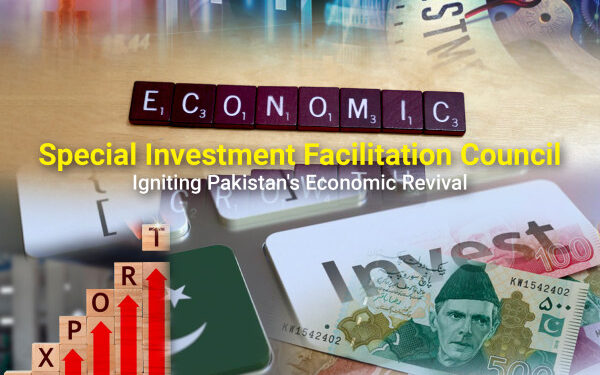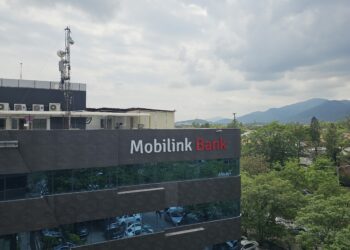Islamabad — Pakistan is witnessing a remarkable resurgence in global economic confidence, as evidenced by a record increase in remittances and foreign investment. This development marks a significant milestone in the country’s journey toward economic recovery, growth, and stability. At the center of this transformation is the Special Investment Facilitation Council (SIFC), which has emerged as a key driver of economic reform and investor confidence during its second operational year.
The recent economic indicators suggest that Pakistan’s economy is on a path of sustainable recovery, with a renewed focus on policy reforms, international trade expansion, and green financing. This article explores the multiple facets of this economic resurgence and the critical factors contributing to the restoration of global faith in Pakistan’s financial future.
Strong Economic Performance: Remittances Hit Record High
Overseas Pakistanis Send $34.89 Billion in First 11 Months
One of the most significant indicators of economic confidence is the surge in remittances. In the first 11 months of the fiscal year 2024–25, Pakistan received a record $34.89 billion in remittances from abroad. This not only signifies the unwavering support of the Pakistani diaspora but also highlights their trust in the country’s economic direction.
Key Source Countries for Remittances
A large portion of these remittances—around 70%—came from four countries:
- Saudi Arabia
- United Arab Emirates
- United Kingdom
- United States
These countries house the largest expatriate communities of Pakistanis, and the increase in remittance flow from these nations has provided crucial support to Pakistan’s balance of payments and foreign exchange reserves.
Role of SIFC in Economic Recovery
A Game-Changer for Investment and Reform
Established as a multi-agency platform to fast-track economic initiatives, the Special Investment Facilitation Council (SIFC) has proven instrumental in streamlining investments, easing bureaucratic hurdles, and enhancing inter-institutional coordination. Now in its second year, SIFC continues to play a central role in reviving investor confidence and pushing forward reform-based growth.
Its achievements span across a broad spectrum of sectors including:
- Trade and exports
- Foreign Direct Investment (FDI)
- Industrial development
- Environmental finance
The success of SIFC can be attributed to its whole-of-government approach, involving military, civil, and business stakeholders working in synergy to accelerate national development goals.
Surge in Exports to European Markets
8.62% Growth Reflects Global Trust in Pakistani Products
Pakistan’s export sector has also shown significant progress, especially in European markets. In the first 10 months of the current fiscal year, exports to Europe reached $7.553 billion, reflecting an 8.62% year-on-year growth. This increase demonstrates not only enhanced trade capacity but also improved compliance with international quality standards and competitive pricing.
This growth is attributed to:
- Enhanced diplomatic trade engagement with EU nations
- Improved production capacity in textile and manufacturing
- Implementation of WTO-compliant export policies
- Trade incentives provided through the GSP+ scheme
The positive trend in exports is helping Pakistan diversify its foreign exchange streams while positioning itself more competitively in global supply chains.
Foreign Investment Flourishes Across Key Sectors
Investment Climbs in Construction, Cement, and Household Goods
Thanks to a series of policy initiatives and investment-friendly reforms, Pakistan is now witnessing a steady inflow of foreign direct investment (FDI). Sectors that have seen notable interest from international investors include:
- Construction and infrastructure
- Cement manufacturing
- Rubber and chemical products
- Household goods
- Social services
This foreign investment is not only expanding the industrial base but also generating employment, boosting productivity, and supporting innovation.
Profit Repatriation Up by 115%
An important sign of restored investor confidence is the 115% increase in foreign companies’ profit repatriation, which reflects the predictability, profitability, and stability of Pakistan’s business climate. It shows that foreign investors are now more willing to reinvest or repatriate earnings with reduced fear of currency volatility or policy reversals.
Green Sukuk and Sustainable Development: A First for Pakistan
Rs30 Billion Allocated to Eco-Friendly Projects
In a major step toward environmental sustainability and green finance, Pakistan launched its first-ever Green Sukuk, raising Rs30 billion to fund eco-friendly and climate-resilient projects. This Islamic financial instrument is designed to:
- Support clean energy initiatives
- Strengthen climate adaptation infrastructure
- Promote green transportation systems
- Improve water management and forestry programs
This innovative move reflects Pakistan’s commitment to the UN Sustainable Development Goals (SDGs) and positions the country as a regional leader in Islamic green finance.
IMF Endorsement Adds to Global Confidence
$1.4 Billion in Sustainable Development Funds Approved
Adding to Pakistan’s credibility in global financial markets, the International Monetary Fund (IMF) recently approved $1.4 billion in sustainable development funds for Pakistan. This decision by the IMF underscores:
- Confidence in Pakistan’s macroeconomic stability
- Support for its development and reform agenda
- Validation of SIFC’s role in transforming the investment landscape
IMF funding provides critical liquidity and reassures other multilateral donors and investors about Pakistan’s ability to honor its commitments.
Holistic Reform Agenda Addresses Long-Standing Economic Challenges
Tackling Structural Issues Through Policy Reforms
Under the leadership of SIFC and in collaboration with key ministries, Pakistan has implemented a wide-ranging reform agenda that aims to address:
- Energy sector inefficiencies
- Revenue generation and tax reform
- Public-private partnership models
- Digitalization of investment services
- Transparency and regulatory streamlining
These reforms not only improve the ease of doing business but also strengthen the country’s resilience against external economic shocks.
A New Economic Narrative for Pakistan
The recent data trends and policy outcomes signal a positive shift in Pakistan’s economic trajectory. From increased remittances and exports to foreign investment and green financing, Pakistan is now writing a new economic narrative—one that is based on confidence, credibility, and commitment.
This transformation is driven by:
- Smart governance mechanisms like SIFC
- Support from international allies and institutions
- Strong involvement of overseas Pakistanis
- Institutional reforms in trade and industry
Conclusion: Toward a Prosperous and Resilient Pakistan
The restoration of global confidence in Pakistan, as seen through the surge in remittances, exports, and foreign investment, indicates that the country is on a sustainable path of economic revival. The Special Investment Facilitation Council has proven to be a catalyst for reform, facilitating coordination across public and private sectors.
With continued momentum, Pakistan is well-positioned to attract more international capital, expand its trade footprint, and achieve economic resilience in an increasingly competitive global environment.
As the government works to consolidate these gains, the role of overseas Pakistanis, international partners, and institutional stakeholders will be pivotal in ensuring that this upward trajectory continues in the years to come.

























